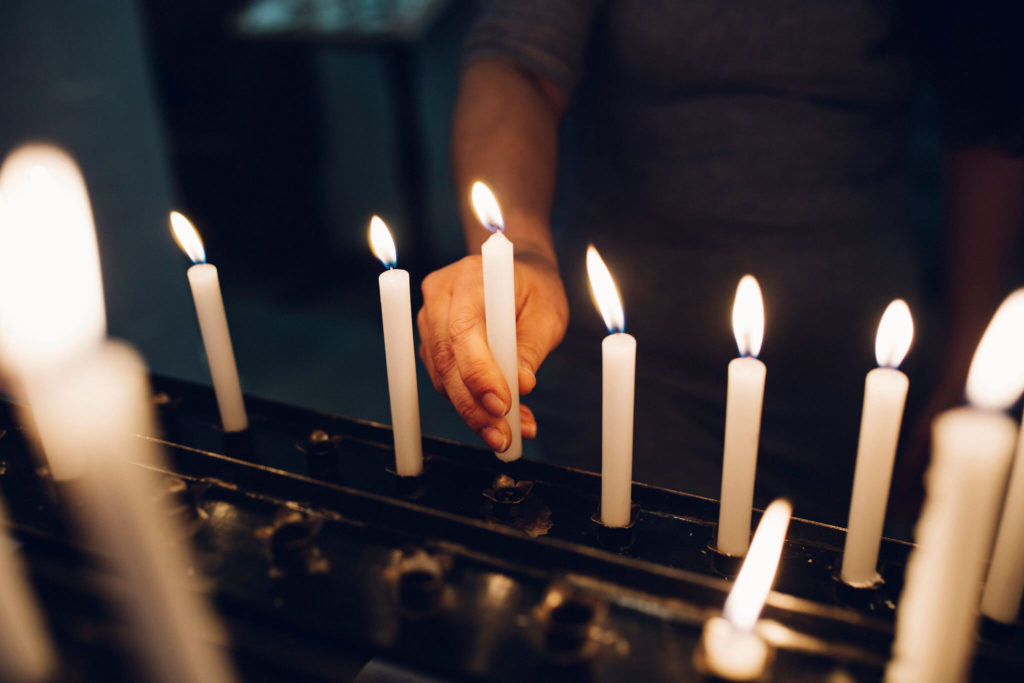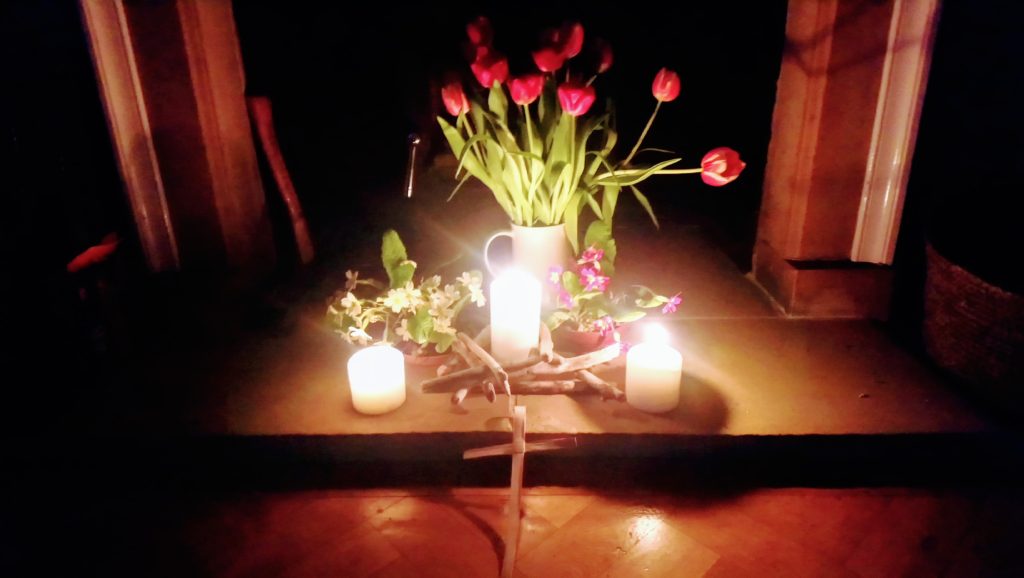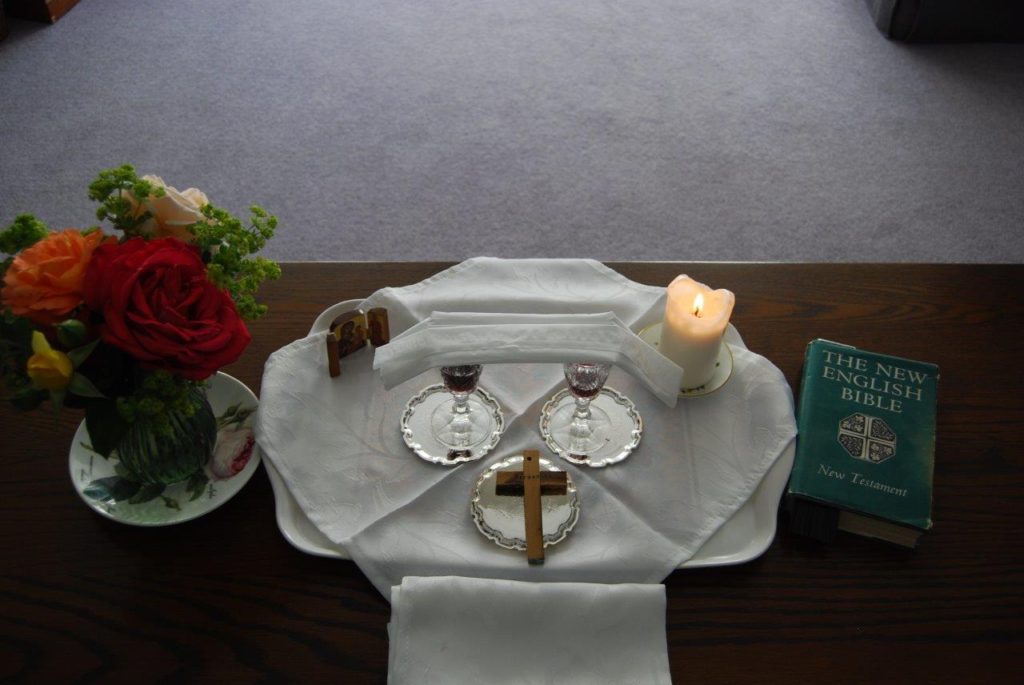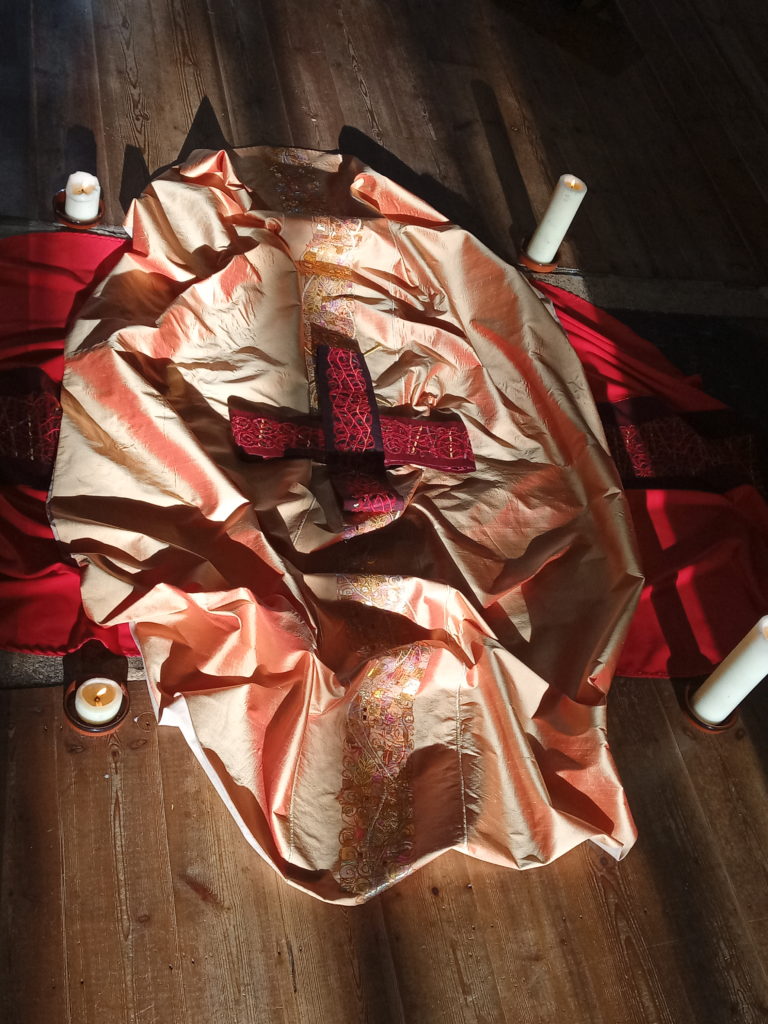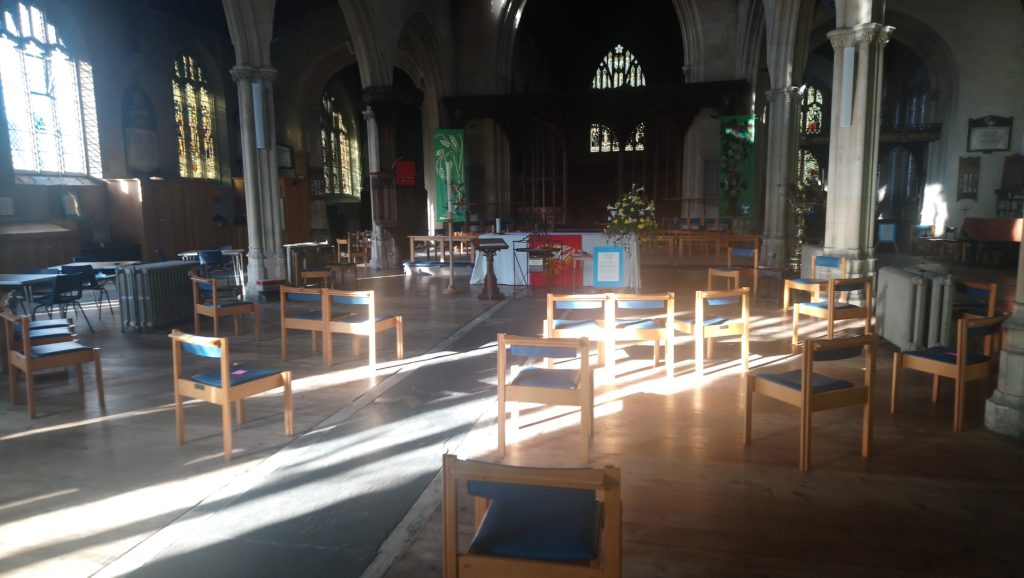Please keep this liturgy to use each week until Ash Wednesday – prayers, hymn suggestions and readings will be provided with the pewsheet each week. If you’d like a hymnbook, Rod can drop one off to you.
Preparing for worship – if possible, beginning at 9am or 10.30
You’ll need a table, set with a piece of bread and a glass of wine or juice.
A cross.
A candle, ready to light on the table.
Forty days ago we celebrated the birth of Jesus. Now we recall the day on which he was presented in the Temple. In their old age Simeon and Anna recognized him as their Lord; as we today sing of his glory, we celebrate both the joy of his coming and the challenge of his message, looking back to the day of his birth and forward to the coming days of his passion.
PREPARATION Light your candle as you say this response
We wait for your loving-kindness, O Lord,
in the midst of your temple.
Open to us the gates of righteousness,
that we may enter and give thanks to the Lord.
Blessed are you, Lord our God, King of the universe, you make our darkness to be light.
For with you is the well of life and in your light shall we see light.
Though each in our homes, we are together with all our sisters and brothers in the faith,
as we worship and give thanks. In the name of the Father, Son and Holy Spirit. Amen.
HYMN (said or sung) Suggestions for hymns are on the weekly pewsheet.
Great is the Lord and greatly to be praised, in the city of our God.
His holy mountain is fair and lifted high, the joy of all the earth.
As with your name, O God, so your praise reaches to the ends of the earth.
Let Mount Zion rejoice and the daughters of Judah be glad, because of your judgements, O Lord.
Lord God, the spring and source of everlasting light,
pour into the hearts of your faithful people
the brightness of your eternal splendour,
dispel the darkness of our souls,
and open our eyes to the radiance of your presence. Amen.
PENITENCE
Jesus said, ‘I am the light of the world.
Whoever follows me shall not walk in darkness but shall have the light of life.’
Let us therefore bring our sins into his light and confess them in penitence and faith.
After a moment of quiet reflection, we confess our sins to God with this prayer;
Father eternal, giver of light and grace,
we have sinned against you and against our neighbour,
in what we have thought, in what we have said and done,
through neglect, through weakness,
through our own deliberate fault.
We have wounded your love, and marred your image in us.
We are sorry and ashamed, and repent of all our sins.
For the sake of your Son Jesus Christ, who died for us,
forgive us all that is past; and lead us out from darkness
to walk as children of light. Amen.
THE ASSURANCE OF FORGIVENESS
God of love, you forgive us and free us from our sins, you heal and strengthen us by the Holy Spirit,
and raise us to new life in Christ our Lord. Amen
We say verses from Psalm 29 in place of the Gloria
The Lord is my light and my salvation; whom then shall I fear?
The Lord is the strength of my life; of whom then shall I be afraid?
Though a host encamp against me, my heart shall not be afraid,
and though there rise up war against me, yet will I put my trust in him.… Read More

